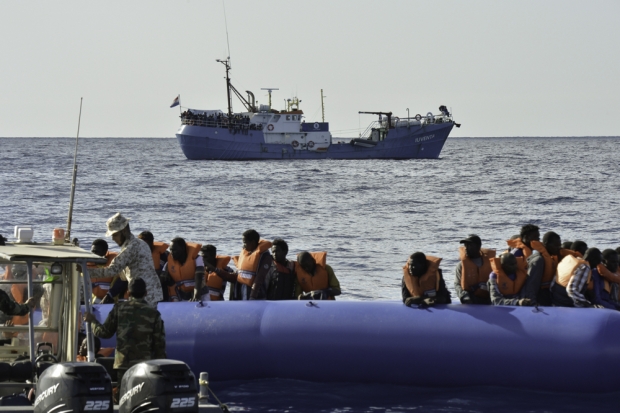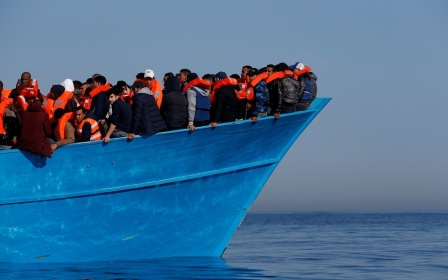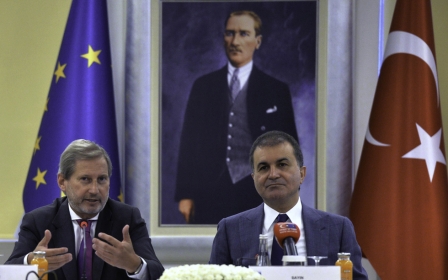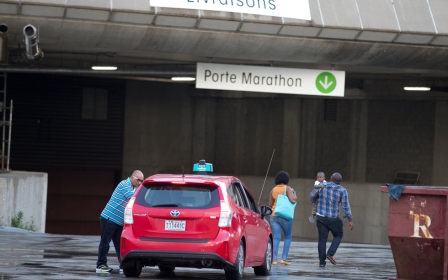Italy seizes NGO rescue boat for 'aiding illegal migration'
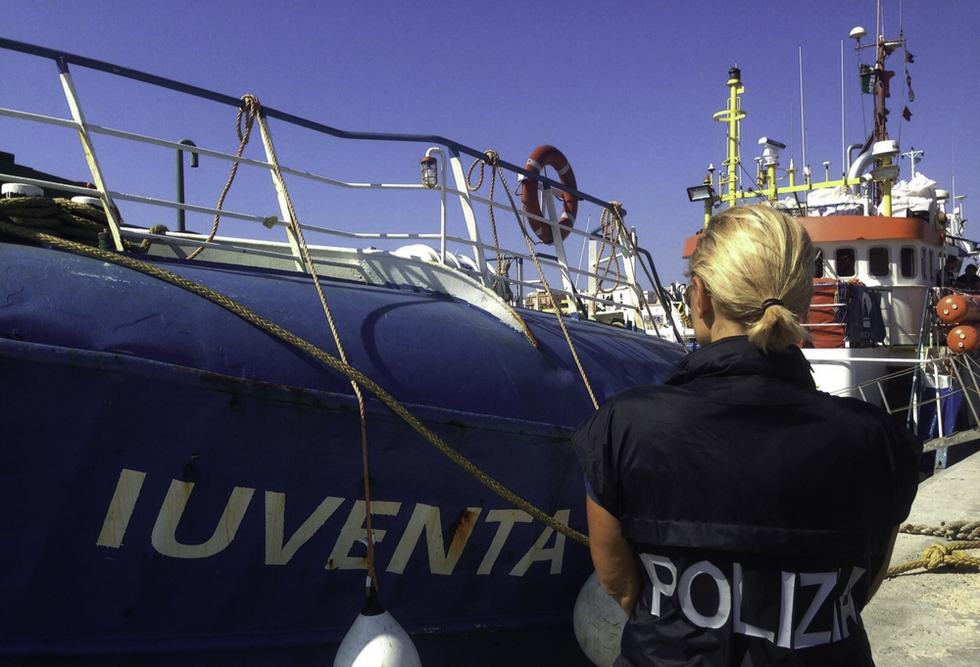
Italy seized a migrant rescue boat operated by a German aid group, prosecutors announced on Wednesday, accusing it of aiding and abetting "clandestine migration" from Libya.
The move comes as Italy toughened its approach to migration in the Southern Mediterran, dispatching a limited naval mission to Libyan waters to assist the Libyan coastguard and curb migrant flows.
The German group, which describes itself as an organisation of young Europeans, was one of five groups aiding migrants in the southern Mediterranean which refused to sign an Italian eight-point code-of-conduct regulating non-governmental actors, including a demand that they carry an armed policeman on board their boats.
Italy's interior minister, Marco Minniti, warned the day after the seizure that NGOs would likely be unable to continue operating if they did not sign up to the new rules.
Video showed the boat the Iuventa arriving at the island of Lampedusa surrounded by several coastguard vessels after it was stopped at sea before dawn.
Police inspected the ship as soon as it docked and checked the crew passports. They later took charge of the boat and set sail for a larger port in Sicily.
Jugend Rettet said on Twitter that it was currently "gathering information on all levels" and hoped to be in touch with "the Italian authorities in the near future".
"For us, the rescue of human life is and will be top priority, so we are very sorry for the fact that we are not able to operate in the search and rescue zone," their statement said.
Ambrogio Cartosio, chief prosecutor in the western Sicilian city of Trapani, told a news conference his investigation into Jugend Rettet was ongoing and no one had yet been charged.
"The evidence is serious," Cartosio said. "We have evidence of encounters between traffickers, who escorted illegal immigrants to the Iuventa, and members of the boat's crew."
Italian media reported the boat had two Syrians aboard who were taken to a refugee centre, but that could not be immediately confirmed.
It was the first time Italian police have seized a humanitarian boat. The move came amid growing suspicion over the role non-governmental organisations are playing in picking up migrants off the Libya coast and bringing them to Italian ports.
The group put out a statement on their Facebook page on Tuesday questioning the code’s legality but saying it wanted further dialogue with the Italian interior ministry on the issue. Cartosio denied a suggestion that there was any link between this refusal and the boat's seizure.
Spain's Pro-Activa Open Arms charity, one of three organisations to have signed, said it regards the code as "unnecessary but acceptable" while other groups including Doctors Without Borders, have refused to sign.
No coordinated plan
Cartosio said there was no indication that Jugend Rettet had received any money from the Libya-based traffickers.
"It would be fantasy to say there was a coordinated plan between the NGOs and the Libyan traffickers," he said.
Cartosio told a parliamentary committee in May that he had suspicions about certain humanitarian groups because some rescue crew seemed to know in advance where to locate the flimsy boats crowded with migrants.
The mood in Italy has turned against NGOs operating in the Mediterranean, as political parties have called for action to be taken against them.
The Five Star Movement, which polls say is now the country's biggest party, has accused NGOs of offering a "taxi" service to migrants, while the rightist Northern League party has said all their ships should be impounded.
The humanitarian groups say they are only interested in saving lives, warning that thousands of people would die if they were not out at sea. Despite their efforts, 2,200 migrants have died so far this year trying to reach Europe from North Africa.
Looking to turn the screws on the traffickers, Italy's parliament authorised on Wednesday a limited naval mission to help Libya's coastguard curb migrant flows.
Jugend Rettet says on its website it started patrolling the Mediterranean in July 2016 and has rescued 6,526 people in its first year of action.
"We want to put pressure on state actors to enforce the fundamental right to life and security even in the Mediterranean," the group says.
Minniti added on Thursday that the number of migrants to Italy had dropped in recent weeks, and that the Italian government would work with Chad, Niger and Mali on measures to reduce the number of migrants leaving for Europe.
New MEE newsletter: Jerusalem Dispatch
Sign up to get the latest insights and analysis on Israel-Palestine, alongside Turkey Unpacked and other MEE newsletters
Middle East Eye delivers independent and unrivalled coverage and analysis of the Middle East, North Africa and beyond. To learn more about republishing this content and the associated fees, please fill out this form. More about MEE can be found here.


